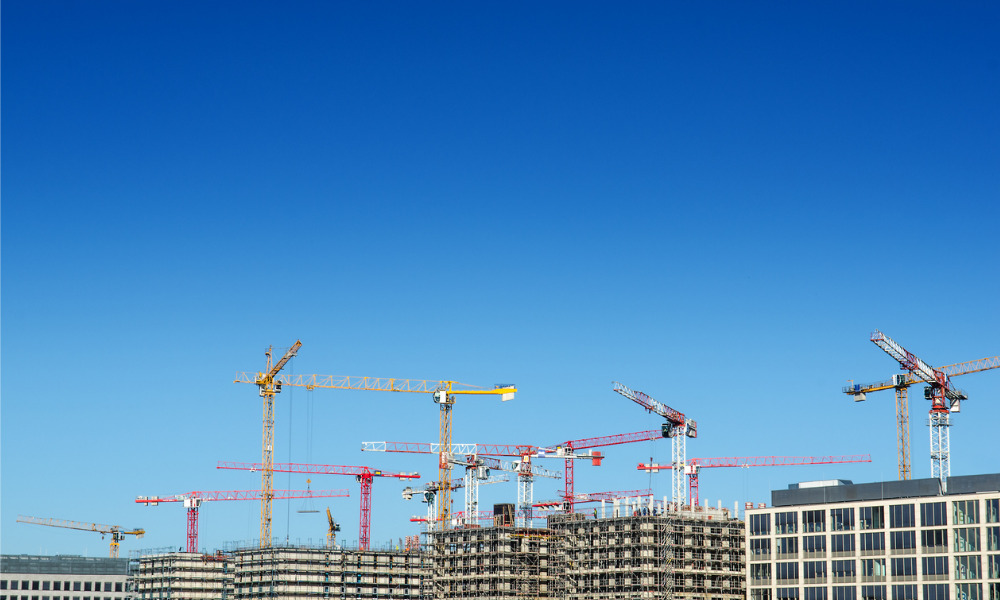The construction industry remains strong despite NZ’s overall economic momentum losing a bit of lustre in recent months, economist says

New building consents have continued to surge, piling extra pressure on New Zealand’s construction industry, which was already under considerable strain due to supply chain disruptions and severe labour shortages.
Read more: Experts warn NZ construction sector threatened by “broken” supply chain
CoreLogic’s Cordell Construction Cost Index showed the country’s quarterly rate of growth reached a new record high in Q1, running at 2.4% for the first three months of 2022, surpassing the previous fastest rise of 2.2% recorded over the same period last year.
The latest annual increase of 7.3% was also a new record, outpacing the 6.9% cyclical peak posted in Q4 2017.
Kelvin Davidson, CoreLogic’s chief property economist, said NZ’s overall economic momentum may have lost a bit of lustre in recent months, but the construction industry remains strong on the back of dwelling consent numbers, which hit a record high of nearly 49,800 in the 12 months to February.
Estimates vary and carry uncertainty, but there’s a sense now that the industry itself could only handle up to 35,000 dwellings in any given year – lower than current consents, implying a spillover into future years too, according to CoreLogic.
Read next: CoreLogic on what’s happening with residential construction costs
Davidson said the sheer volume of new builds means there will be no respite for the stretched materials supply chain and an industry that’s facing labour shortages – this despite smaller dwellings such as townhouses and apartments accounting for 49% of the total figure.
“Some key components are driving the increases in the prices of materials, including timber in general, structural products specifically, as well as metal prices,” Davidson said. “Variability in wholesale prices means suppliers are passing through increases to their customers more often and can’t retain existing price lists for too long. Wage costs are also rising in the house-building industry as firms work to full capacity.”
The record increase in construction costs follows last week’s OCR hike by 0.5% – an RBNZ decision that will likely add additional affordability challenges to the housing market.
Davidson said higher mortgage rates and rising construction costs could potentially push home owners and buyers to forgo or delay new builds, renovations, and alterations in the short term.
Even a decline in building consents, however, is unlikely to translate into an easing of the CCCI, with rises forecast to continue throughout 2022 with delays in construction completion times and material shortages to remain.
Davidson said builders will be busy for some time simply based on the pipeline of dwelling consents already approved.
“I wouldn’t rule out a period of double-digit cost inflation into next year too – especially if the Ukraine-Russia situation keeps the pressure on oil prices and global shipping even if/when omicron’s impact fades,” he said. “One implication of the capacity pressures for house-building is the time between dwelling consent and completion could increase further. Meanwhile, product substitution could continue to become more common too – either costing more for the same quality, or downgrading on quality to keep the costs similar. Finally, reduced dwelling consents in future would tend to underpin the values of existing properties.”



